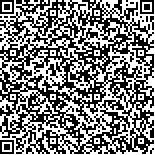| 易小娟.学习型社会中90后学习意愿影响因素研究——基于CGSS2015数据的实证分析[J].军事高等教育研究,2021,44(3):44-50 |

二维码(码上扫一扫!)
|
| 学习型社会中90后学习意愿影响因素研究——基于CGSS2015数据的实证分析 |
| Factors Influencing the Learning Intention of the Post-1990s in the Learning Society:An Empirical Study Based on the CGSS2015 Data |
| |
| DOI: |
| 中文关键词: 学习型社会 90后 学习意愿 实证研究 |
| Key Words:learning society post-1990s learning willingness empirical study |
| 基金项目: |
|
| 摘要点击次数: 4970 |
| 全文下载次数: 7444 |
| 中文摘要: |
| 建设学习型社会离不开社会成员的普遍化参与。成长于社会发展和转型时期的90后,学习已成为一些人的生活方式。分析发现,越多接触新媒体、受教育程度高、未婚的个体行动者,越倾向于在可自由支配的时间里学习;是否居住在城市、父辈的受教育水平,以及对社会公平认知等因素并不显著影响90后群体的学习意愿。鉴于此,建设学习型社会应注意社会个体特征差异,针对差异性提出激发社会成员学习意愿的优化策略。 |
| Abstract: |
| The construction of learning society cannot be separated from the universal participation of social members. For people growing up in the period of social development and transition after 1990s,learning is a way of life. It is founds that individuals who are more exposed to new media,highly educated and unmarried,are more likely to study in the free time. Factors such as living in a city,the educational level of the parents and the perception of social fairness do not significantly influence the learning willingness of the post-90s group. Therefore,the construction of learning society can pay attention to the differences of social individual characteristics,and put forward the optimization strategy to stimulate the learning willingness of social members. |
| 查看全文 查看/发表评论 下载PDF阅读器 |

